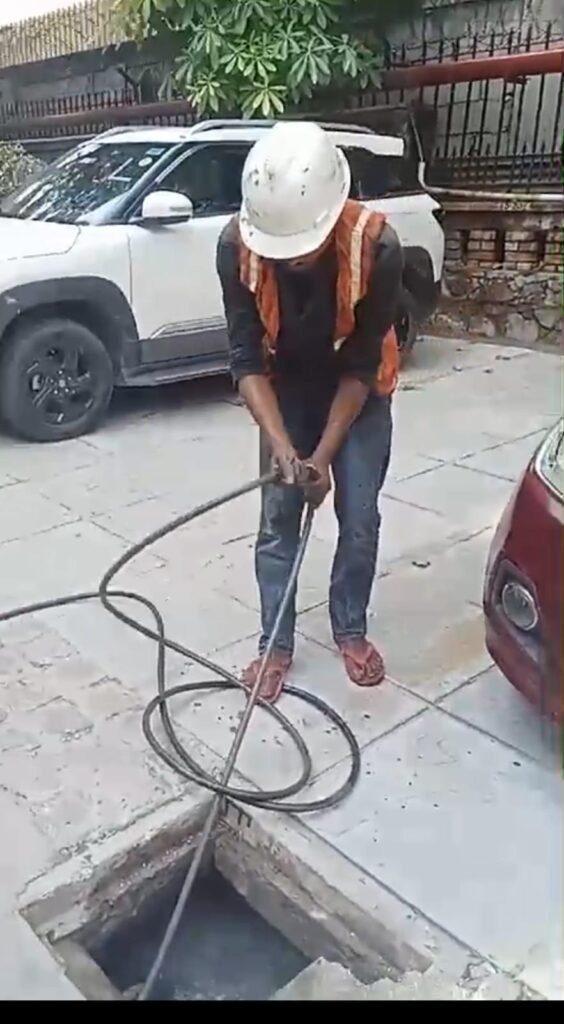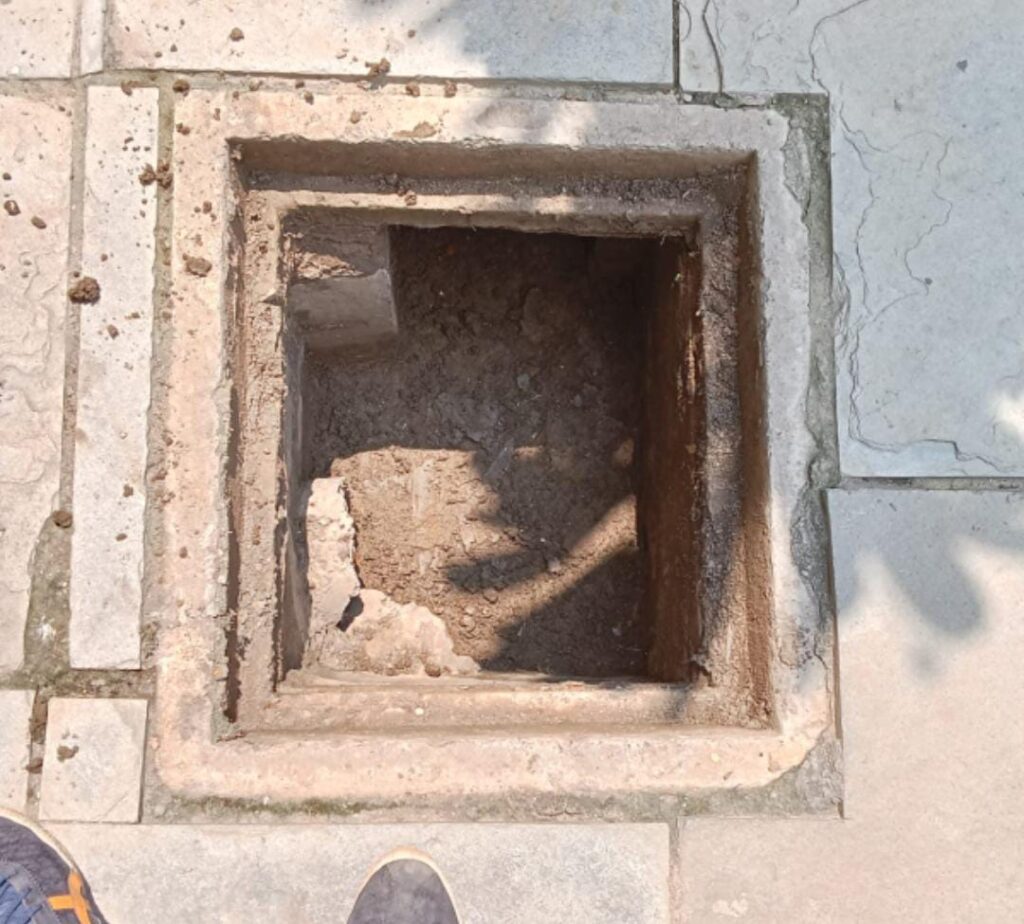Storm water is water originating from precipitation including rains and meltwater. In urban areas, during heavy rains, the impermeable surfaces such as pavement and roofs prevent the water from naturally soaking into the ground immediately. Instead, water runs rapidly into storm drains, sewer systems and drainage ditches and can cause flooding, erosion, turbidity/muddiness, storm and sanitary sewer system overflow and infrastructure damage. This excess moisture that runs across the surface carries debris, chemicals, bacteria, eroded soil and other pollutants, all of which later seeps into the ground. The traditional storm water management would only drain away the excess water, but the modern approach is a sustainable management, aiming to rebuild natural water cycle by capturing and recharging the storm water along with maintaining and restoring natural hydrology.
In one of its kind initiatives, The Crescent (F-2, Sector-50) — under the guidance of Crescent Management Committee headed by President, Naresh Mehra — recently completed a stormwater management project in association with a technology and services provider of Gurugram.
Crescent has storm water lines and interconnected Rainwater Harvesting pits (RWH pits) which drain the rainwater from roofs, parking lots, pavements, driveways, garden area, etc. to a large tank, where water is harvested and the treated water is then allowed to drain into ground. The focus of the Storm Water Management project, undertaken by the society, was on cleaning these storm water lines and pits. The procedure involved use of advanced jetting-cum-suction machines, which efficiently removed debris and blockages, thereby improving drainage and reducing flood risks. These robust machines with hydraulically operated manhole desalter process were pivotal in the operations. The machines efficiently cleared debris and sediments from storm water lines and rainwater harvesting pits.
The jetting mechanism utilise high pressure water jets at a pressure of up to 3000 psi dislodging accumulated silt and other obstructions within the drainage system. The rejuvenated water in the harvesting pits will now be an asset in the long run and a step towards improving the ever-depleting water level in the entire area. The Management committee ensured minimum disruptions through a no-interference policy, which kept residents informed and comfortable during the project.
Carrie Underwood said, “Successful people have a social responsibility to make the world a better place, and not just take from it.” And so is Crescent, a leader in both community well-being and environmental sustainability. By promoting better water management practices, it has set a benchmark for urban infrastructure projects in the area.



Popular Stories
How To Revive Your Rainwater Harvesting System
The Water Couple’s Journey: From Cleaning Tanks to Complete Water Solutions!
Locals Felling Trees Near Sec A Pkt C
Winning Has Become a Habit for Divya
Is Green Park Heading Towards A Slum
Haphazard Parking, Narrow Walking Space In M Block Market
Recent Stories from Nearby
- Women’s Day-Vasant Kunj Ambassador In Noida! March 26, 2025
- Free Multi-Specialty Health Camp in D-3/4! March 26, 2025
- Pride of Vasant Kunj! March 26, 2025
- Self-Defense Classes March 26, 2025
- Rang Barse: A Vibrant Extravaganza March 26, 2025







